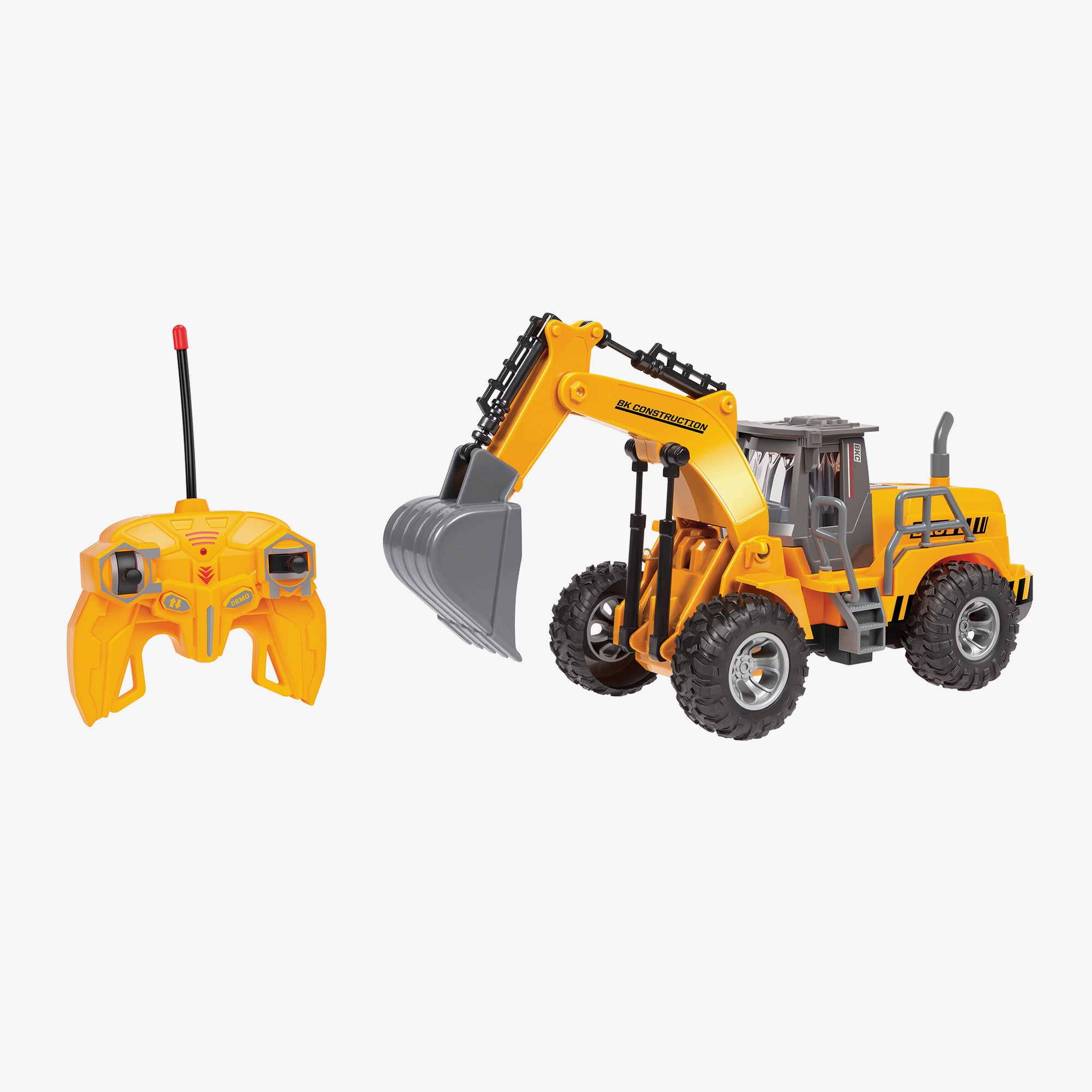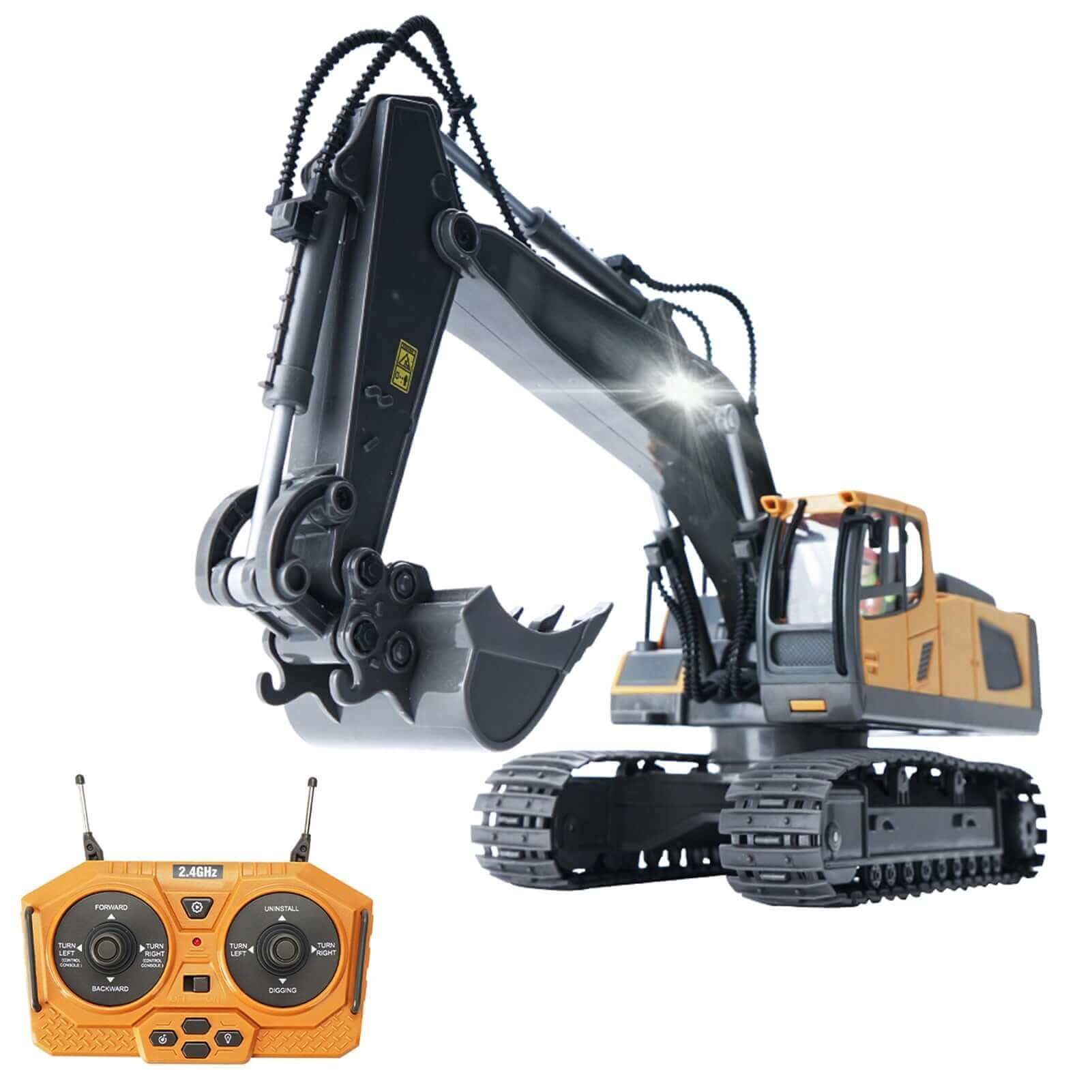Recognizing Exactly How Excavator Functions and Its Influence On Efficiency
Excavators play an essential duty in construction and mining procedures, relying upon an intricate interaction of mechanical and hydraulic systems. Their capability to carry out a range of jobs depends upon both their layout and the modern technology integrated within. Understanding these components can greatly impact functional efficiency and performance. As innovations proceed to reshape the industry, one must consider exactly how these adjustments will affect future methods and performance.
The Basics of Excavator Mechanics

The Function of Hydraulic Equipments in Excavators
At the heart of excavator operation lies the hydraulic system, which plays a critical duty in powering the machine's functions and activities. This system uses pressurized hydraulic fluid to move energy, making it possible for various activities such as lifting, swinging, and digging. By taking advantage of the principles of hydraulics, excavators can perform tasks with exceptional accuracy and force, enhancing general functional efficiency.The hydraulic system consists of essential elements, consisting of pumps, shutoffs, and cylinders, which function together to manage the circulation and direction of the fluid. When the operator involves the controls, the hydraulic liquid is directed to certain cyndrical tubes, converting the operator's commands right into physical motion. This system enables smooth and responsive actions, which are vital in building and excavation environments. double e volvo rc excavator. The performance of the hydraulic system directly affects the efficiency and versatility of the excavator, making it an important element in modern-day excavation processes
Trick Parts of an Excavator
Understanding the vital elements of an excavator is essential for comprehending just how this effective device runs. An excavator contains a number of substantial aspects, including the undercarriage, residence, boom, arm, and bucket. The undercarriage provides security and movement, usually including tracks or wheels to browse different surfaces. Your house includes the engine and hydraulic systems, permitting the operator to regulate motion and power the device. The boom extends from the residence, making it possible for vertical reach, while the arm attaches to the pail, promoting digging and lifting operations.Additionally, the cab houses the operator, equipped with controls for exact handling. Each of these components plays a vital function in the excavator's total capability, adding to its performance and performance on building sites. Understanding these components helps in preserving and enhancing excavator efficiency, making certain jobs are finished securely and efficiently.
Add-on Adaptability and Its Benefits
Accessory flexibility is a necessary facet of excavators, allowing operators to change in between numerous tools customized for particular jobs. This versatility not just boosts job effectiveness but additionally adds to cost-effectiveness by decreasing the demand for multiple machines. Understanding the different types of accessories offered can substantially influence the general performance and performance of an excavator on job sites.
Kinds of Attachments
While excavators are primarily acknowledged for their excavating abilities, their true versatility hinges on the large variety of add-ons readily available. These add-ons improve the excavator's performance, enabling it to carry out various tasks past excavation. Usual accessories include containers (for digging and scooping), hydraulic thumbs (for grasping products), and augers (for piercing openings) Grapples are used for dealing with and moving debris, while rippers can separate difficult surfaces. Various other specialized accessories, such as plates and rakes, enable excavators to adjust to particular job needs. This variety not only increases the machine's energy across different sectors, including demolition, landscaping, and building and construction, however also permits drivers to customize their tools to meet particular job needs effectively.
Enhanced Work Effectiveness
Making the most of job efficiency is a main advantage of making use of various excavator add-ons. Different add-ons permit an excavator to perform numerous jobs without requiring to change tools, saving valuable time and labor. For example, utilizing a hydraulic hammer can damage concrete while a container add-on can excavate dirt, enabling a smooth workflow. This convenience reduces downtime related to tools adjustments and improves efficiency on-site. In addition, specialized attachments improve precision in tasks such as grading or landscape design, leading to better results. The capacity to adjust to numerous work requirements not only streamlines operations but also minimizes the need for additional machinery, making sure that tasks are finished promptly and properly. On the whole, add-on convenience substantially adds to boosted work performance in excavation job.
Cost-Effectiveness and Convenience
Cost-effectiveness is a substantial benefit of making use of flexible excavator accessories. These accessories allow a solitary excavator to do several jobs, minimizing the requirement for additional equipment and labor - double e volvo rc excavator. By switching over in between containers, hammers, and grapples, operators can tackle various projects, from excavating to demolition, therefore optimizing devices use. This adaptability not just decreases functional expenses however likewise lessens downtime connected with altering tools. Additionally, the capability to personalize excavators with specialized attachments enhances efficiency, as they can effectively deal with diverse jobs he said according to task needs. To wrap up, the combination of cost-effectiveness and convenience in excavator attachments adds to enhanced functional performance and resource allocation in building and construction and excavation jobs

Advanced Innovation in Modern Excavators
Modern excavators are significantly outfitted with innovative innovation that changes excavation procedures. Automation simplifies procedures, while improved fuel effectiveness minimizes functional expenses. Furthermore, wise control systems enhance precision and safety, marking a substantial development in excavation equipment.
Automation in Excavation Processes
As excavation technology evolves, automation has actually become an essential element in enhancing effectiveness and precision on job websites. Modern excavators are geared up with advanced automated systems that promote tasks such as grading, excavating, and trenching with very little operator treatment. These systems utilize sensors, GPS, and artificial intelligence formulas to ensure accurate placing and depth control, substantially decreasing the margin for mistake. Additionally, automation enables operators to concentrate on strategic decision-making instead of manual controls, causing enhanced performance overall. Such technologies not only enhance operations however also improve security by reducing human mistake in intricate operations. As a result, the combination of automation in excavation procedures stands for a considerable development in building modern technology, driving the industry towards greater effectiveness and efficiency.
Enhanced Fuel Effectiveness
Innovations in innovation have actually likewise caused substantial enhancements in gas effectiveness for contemporary excavators. Modern devices are geared up with sophisticated engines that optimize power output while decreasing fuel consumption. These engines make use of cutting-edge burning modern technologies, such as turbocharging and straight gas shot, to boost performance and performance. Furthermore, lightweight materials in construction minimize overall weight, enabling less energy expense throughout operation. The introduction of variable speed controls makes it possible for operators to adjust engine performance according to particular jobs, better decreasing gas use. As a result, these enhancements not only reduced functional expenses yet additionally add to ecological sustainability by lowering exhausts. Generally, improved fuel effectiveness in excavators is an essential growth that boosts efficiency and economic stability in the building and construction market.
Smart Control Systems
While drivers navigate increasingly complex work sites, smart control systems in excavators have actually emerged as crucial tools for boosting effectiveness and precision. These innovative innovations utilize sensing units and algorithms to keep an eye on different parameters such as tons weight, surface conditions, and functional performance. By instantly changing hydraulic features, wise systems maximize device efficiency, leading to boosted productivity and minimized wear on elements. Furthermore, drivers benefit from user-friendly interfaces that give real-time feedback and diagnostics, enabling for educated decision-making. This integration of modern technology not only enhances procedures but likewise decreases human error, adding to much safer workplace. As the construction sector remains to advance, wise control you can try here systems will certainly play a vital function fit the future of excavator efficiency and efficiency.
Enhancing Functional Effectiveness With Excavators
Excavators play an important function in improving functional effectiveness throughout numerous construction and excavation projects. Their versatility enables multiple tasks, consisting of product, training, and excavating handling, which enhances process and minimizes the demand for added tools. With effective hydraulic systems, excavators can execute sturdy tasks with precision, considerably decreasing the moment called for to full tasks. The integration of sophisticated innovation, such as general practitioner and automated controls, further optimizes their procedure, making it possible for drivers to attain greater precision and lower product waste. Furthermore, contemporary excavators are created to eat less fuel and reduce discharges, adding to both price financial savings and ecological sustainability. By using excavators properly, construction teams can enhance productivity, fulfill job due dates, and boost overall website monitoring. This multifunctionality and performance make excavators vital tools in the modern-day building and construction landscape.
The Future of Excavators in Building and Mining Industries
As the construction and mining markets evolve, the future of excavators is positioned for substantial improvement driven by technological innovation and transforming operational demands. Breakthroughs in automation and expert system are improving excavator abilities, enabling improved accuracy and effectiveness in procedures. Self-governing excavators are arising, minimizing the need for human treatment and reducing the threat of accidents.Moreover, the integration of telematics and IoT innovation enables real-time tracking of machine efficiency and predictive maintenance, maximizing uptime. Eco-friendly styles, including electric and hybrid versions, are gaining traction, straightening with sustainability goals within the industry.Additionally, making use of sophisticated products and lighter layouts enhances gas performance while maintaining performance criteria. As these trends development, excavators will certainly play a crucial role in meeting the enhancing needs for performance and safety in construction and mining, inevitably changing functional landscapes.
Frequently Asked Questions
Just How Do Weather Influence Excavator Efficiency?

Weather problems substantially affect excavator performance, as rainfall and mud can prevent traction and stability, while severe temperature levels may affect hydraulic systems. Operators must adapt to these variables to guarantee excellent capability and security during procedures.
What Precaution Should Operators Follow While Making Use Of Excavators?
Security measures for excavator drivers include wearing ideal individual protective tools, carrying out pre-operation assessments, making certain appropriate interaction with ground workers, maintaining a safe distance from overhanging threats, and sticking to established operational procedures to stop accidents.
How Frequently Should Excavators Be Kept for Optimum Performance?
Excavators need to be preserved on a regular basis to ensure peak performance, commonly every 250 operating hours or as specified by the producer. Regular checks boost integrity, stop unexpected breakdowns, and extend the life expectancy of the equipment.
What Is the Typical Life-span of an Excavator?
The average life expectancy of an excavator typically varies from 10,000 to 15,000 hours of procedure. Factors influencing durability consist of upkeep Continue techniques, operating conditions, and the quality of the maker itself, influencing total productivity and effectiveness.

Can Excavators Operate Unequal Terrain Successfully?
Excavators can operate properly on unequal surface because of their verbalized layouts and adjustable tracks. These attributes allow them to keep stability and grip, enabling reliable operation in difficult environments frequently encountered in building and landscape design tasks. Each of these elements plays a crucial duty in the excavator's total capability, adding to its efficiency and efficiency on building websites. Taking full advantage of task effectiveness is a main advantage of utilizing different excavator attachments. While operators browse significantly complex job sites, clever control systems in excavators have emerged as essential devices for boosting efficiency and precision. Excavators play a crucial function in improving functional efficiency across numerous building and construction and excavation tasks. Advances in automation and artificial intelligence are improving excavator capacities, permitting for enhanced precision and efficiency in operations.
Comments on “What You Didn’t Know About the Safety Features of the remote control excavator”